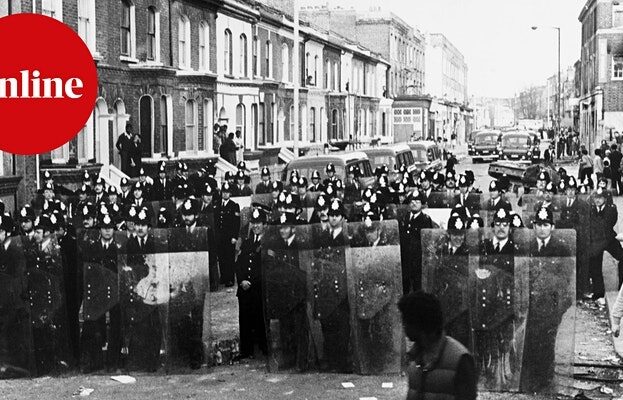
On the 40th anniversary of two pivotal events in Black British history, our panel will explore four decades of protest and resistance.
In early 1981 a house fire in New Cross, south London, killed 13 young Black people, but the police investigation seemed to overlook the possibility that the cause was a racist arson attack. The frustration at and anguish felt by many at the lack of response from the authorities led to the National Black People’s Day of Action – when, on 2 March, 20,000 people marched through London to demand justice.
A few miles away, in Brixton, the Metropolitan Police had enacted Operation Swamp 81, a massive campaign of stop and search on the local Black community. Using the notorious “sus” laws, they were able to arrest people for merely “acting suspiciously” in the officers’ view, and did not require any evidence of an offence being committed. Tensions between residents and the police, further fuelled by the lingering sense of injustice over the New Cross fire, came to a head in April and sparked the Brixton riots.
Four decades on, with the ripples of 2020’s Black Lives Matter marches still being felt, our chair, deputy opinion editor, Joseph Harker, with author and lecturer at Manchester Metropolitan University, Alex Wheatle, 1980s Lambeth council leader Linda Bellos, and co-founder All Black Lives UK, Natasha Johnson will be marking the anniversary of a moment of fundamental change for Black protest, exploring its evolution through the past 40 years to today and ask, what next in the struggle for equality?
